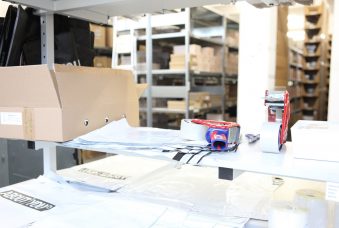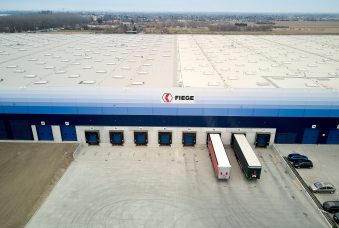Start of preferred delivery date project for online fashion stylist Kisura
Berlin, 8th August 2017. Parcels are expected to reach their destination when shoppers are ready to receive them. A simple idea which can prove to be a logistical challenge. The logistics company Fiege started a project by the name of “Angel” at the end of July which is set to solve this Last Mile delivery challenge. For Kisura, an online fashion stylist, Fiege organises the delivery of parcels and refers to vacant capacities of fleet operators by using an IT platform developed in-house.
Fiege has been working with different partners in the context of the European Union’s “NexTrust” project on developing a collaborative, resource-friendly delivery option for Last Mile logistics. The project is being advanced by a consortium comprising around 30 European companies that partner with scientific consultants on new concepts for partial areas within logistics.
Booming online trade boosts consignment volumes
The part of the project which Fiege spearheads is about making vacant vehicle resources available for the delivery of parcels. The goal is to sustainably handle the dramatically growing volume of parcel shipments which are a result of the booming online trade. Axel Niessner, Senior Project Manager at Fiege and official representative of the “E-commerce logistics innovation” task package, explains: “Parcel service providers currently offer little to no convenience to recipients. We will deliver the parcel at the recipient’s preferred time and place.”
IT platform developed in-house
This applies equally to the Berlin start-up, Kisura which curates complete outfits for women in response to individual requests from its clientele. The heart of the “Angel” logistics concept is an IT platform developed by Fiege which aims to organise eCommerce logistics using collaborative networks. Fleet operators transmit their vacant capacities to the system. The IT platform connects the vehicle with an optimised tour which it then offers to the drivers. Deliveries are to be made within a two-hour window between 6 pm and 11 pm.
“Recipients are pro-actively informed of the exact time of delivery as soon as the delivery driver is on his way”, explains Axel Niessner, who expects the solution to produce these results: “A much higher delivery success rate prevents additional delivery attempts and sustainably contributes towards a reduction of inner-city trips.”




